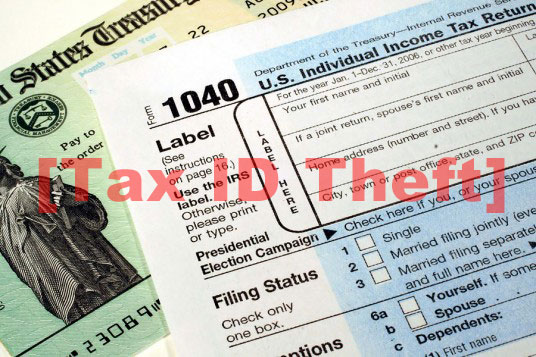IRS Overwhelmed by Tax Related Identity Theft
It’s nerve racking to realize that the IRS increasingly struggles to control taxpayer identity theft. Since 2008, the IRS has identified 470,000 incidents of identity theft affecting more than 390,000 taxpayers. “Victims of tax-related identity theft are the casualties of a system ill-equipped to deal with the growing proficiency and sophistication of today’s tax scam artists” said Sen. Bill Nelson, who chairs the newly formed Subcommittee on Fiscal Responsibility and Economic Growth.
Identity theft harms innocent taxpayers through (1) employment and (2) refund fraud, according to the GAO. In refund fraud, an identity thief uses a taxpayer’s name and Social Security number to file for a tax refund, which the IRS discovers after the legitimate taxpayer files. In the meantime, the victim is out the money due her, causing Sharon Hawa of the Bronx, N.Y. to take on a second job. Ms. Hawa testified before the Subcommittee, describing how she had become an ID theft victim for the second time in three years (the first in 2009) after thieves twice filed tax returns in her name and received her tax refunds. Painstakingly proving her identity to the IRS, time after time over a 14-month period, was only a small part of the stress and utter frustration in the first fraud. And then, as if that trauma hadn’t sufficiently wreaked havoc in Ms. Hawa’s life, it happened a second time.
In employment fraud, an identity thief uses a taxpayer’s name and SSN to obtain a job. When the thief’s employer reports income to the IRS, the taxpayer appears to have unreported income on his or her return, leading to enforcement action. Think of your stress level when you open that envelope from the IRS demanding taxes for money you didn’t earn and don’t have!
The GAO states that the IRS’s ability to address identity theft issues is constrained by several factors, one being that privacy laws limit the sharing of ID theft information with other agencies. Another problem is the timing of fraud detection efforts; more than a year may have passed since the original fraud occurred. The resources necessary to pursue the large volume of potential criminal refund and employment fraud cases are another constraint.
It’s imperative that we taxpayers take responsibility and implement the steps necessary to protect ourselves. There is very little that is more damaging and dangerous to your identity than losing your tax records. After all, tax records generally contain the most sensitive personally identifying information that you own, including Social Security Numbers (for you, your spouse and maybe even your kids), names, addresses, employers, net worth, etc. Because of this high concentration of sensitive data, tax time is like an all-you-can-eat buffet for identity thieves. Here are some of the dishes on which they greedily feed:
- Tax documents exposed on your desk (home and work)
- Private information that sits unprotected in your tax-preparer’s office
- Improperly mailed, emailed and digitally transmitted or filed records
- Photocopiers with hard drives that store a digital copy of your tax forms
- Copies of sensitive documents that get thrown out without being shredded
- Improperly stored and locked documents once your return is filed
- Tax-time scams that take advantage of our propensity to do whatever the IRS says (even if it’s not really the IRS asking)
John Sileo is an award-winning author and international speaker on the dark art of deception (identity theft, data privacy, social media manipulation) and its polar opposite, the powerful use of trust, to achieve success. He is CEO of The Sileo Group, which advises teams on how to multiply performance by building a culture of deep trust. His clients include the Department of Defense, Pfizer, the FDIC, and Homeland Security. Sample his Keynote Presentation (he shares how he lost $300,000, 2 years and his business to data breach) or watch him on Anderson Cooper, 60 Minutes or Fox Business. 1.800.258.8076.
Sorry, comments for this entry are closed at this time.











1 Trackbacks/Pingbacks
2 Responses to IRS Overwhelmed by Tax Related Identity Theft
Good article, but I was hoping for suggestion on how to obtain my refund. Have sent my affidavit and paper return, but cannot get answers from IRS on status of my return
Unfortunately I have heard of no way to find out what is going on with the IRS and refunds besides to wait it out. Not a very fun answer, but it’s honest.